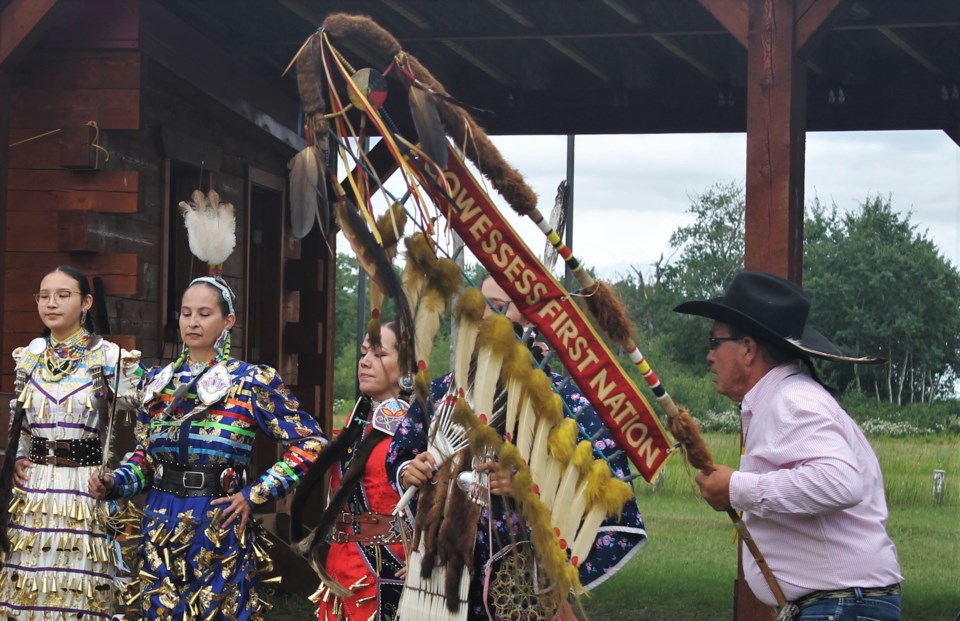Warning: This story involves a topic that some readers may find distressing. If you are feeling triggered, please contact the National Indian Residential School Crisis Hotline at 1-866-925-4419 or the Treaty 4 support line for southern Saskatchewan at 1-306-522-7494.
REGINA — Cowessess First Nation has announced that the federal government has pledged a significant amount of funding to aid in it's ongoing efforts to identify and commemorate those buried in recently discovered unmarked graves near a former residential school site.
In a press release shared to Cowessess’s social media and website, Chief Cadmus Delorme said the Government of Canada has promised $703,230 over the next three years to the Gravesite Reclamation Project now underway.
“This investment on behalf of Canada will assure we get to our end goal,” said Delorme.
Following an investigation using radar technology, Cowessess FN shared the discovery of potentially 751 unmarked graves in the community cemetery in June.
The discovery drew international attention, as the cemetery is notably located near the former site of the Marieval Indian Residential School.
Although the cemetery was used by the whole of the community, Delorme said it is possible that some graves may contain children who attended Marieval.
In the wake of the discovery, Cowessess First Nation began the process of identifying the individuals who may be buried in these unmarked graves, in order to honour their memory and provide closure to loved ones.
“The end goal is to identify a name for each unmarked grave, and will be a place to honour the ones who went before us and provide a place of healing for ones impacted by the unmarked graves,” said Delorme.
Cowessess said the additional funding will be used to support the project’s work in the next three years, which will involve parsing through records, gathering archival statements and undergoing fieldwork to build a monument at the site.
Residential school survivors, community leaders and knowledge keepers are also working to electronically map the unmarked graves, and Cowessess has plans to place commemorative markers on each grave.
All work on the project is being community-led, said Delorme, and the federal funding commitment will continue to support that process.
Minister of Crown-Indigenous Relations Marc Miller and Minister of Indigenous Services Patty Hajdu said the funding is an act of truth and reconciliation from the government offered “as part of efforts to address historical wrongs.”
“As Cowessess First Nation undertakes their important work of identifying and honouring those in unmarked graves, the Federal Government will remain steadfast in our support to Chief Delorme and the community,” said Hajdu.
Earlier this year in August, the Government of Canada pledged approximately $320 million in financial support for “Indigenous-led, survivor-centric and culturally informed initiatives” that will help Indigenous communities respond to the impacts of residential schools.
To date, the federal government has provided $116.8 million to support Indigenous communities in locating and commemorating missing children who attended residential schools.






